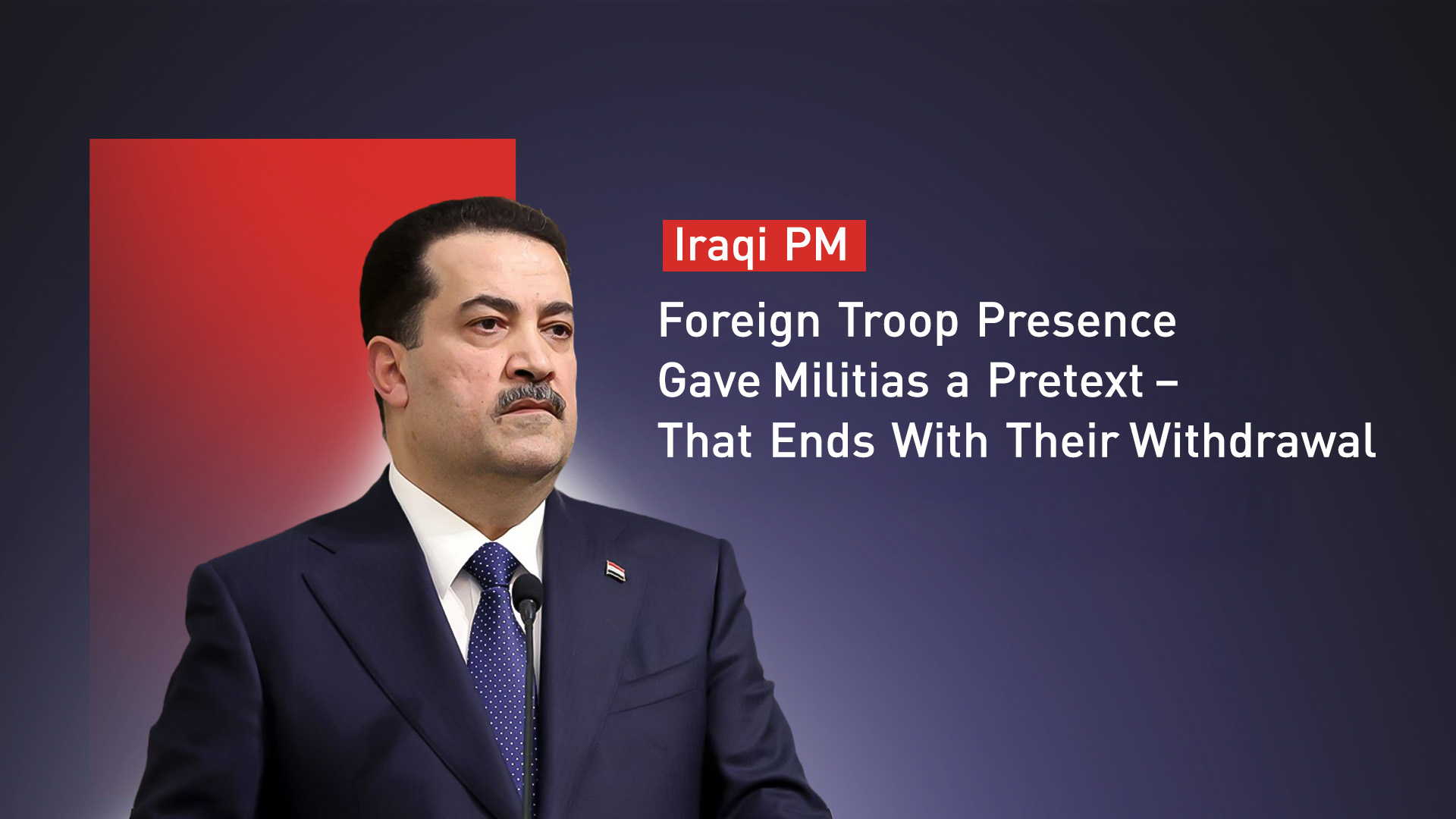Iraqi PM: Foreign Troop Presence Gave Militias a Pretext—That Ends with Their Withdrawal
The remarks come amid sharp tensions between Baghdad and Washington over proposed legislation in the Iraqi parliament that would formalize the relationship between the Iraqi Armed Forces and the PMF.

ERBIL (Kurdistan24) — Iraqi Prime Minister Mohammed Shia Al-Sudani, in an exclusive interview with the Associated Press (AP), on Tuesday, said that the eventual departure of the U.S.-led international coalition from Iraq would eliminate the justification for any armed group operating outside the authority of the state.
“The presence of the coalition forces had provided a ‘justification’ for Iraqi groups to arm themselves,” Al-Sudani said. “But once the coalition withdrawal is complete, there will be no need or no justification for any group to carry weapons outside the scope of the state.”
The remarks come amid sharp tensions between Baghdad and Washington over proposed legislation in the Iraqi parliament that would formalize the relationship between the Iraqi Armed Forces and the Popular Mobilization Forces (PMF), a state-backed umbrella group that includes several factions with close ties to Iran.
The U.S. State Department last week warned that the bill “would institutionalize Iranian influence and armed terrorist groups undermining Iraq’s sovereignty.”
“The Secretary also reiterated serious U.S. concerns with the Popular Mobilization Commission (PMC) bill currently pending in the Council of Representatives (COR), emphasizing that any such legislation would institutionalize Iranian influence and armed terrorist groups undermining Iraq’s sovereignty,” read a statement published by the U.S. Department of State on July 22.
Al-Sudani, however, defended the initiative as a necessary step toward ensuring that all armed entities are accountable to the state. “Security agencies must operate under laws and be subject to them and be held accountable,” he asserted.
He also announced that the U.S. and Iraq are set to meet before the end of the year to reshape their long-term security cooperation, as the future of the international coalition and American military presence remains under discussion.
Drone Attacks in the Kurdistan Region
The interview also touched on a recent wave of drone attacks targeting oil infrastructure in the Kurdistan Region of northern Iraq, which all the factual indications and findings blamed on factions within the PMF. The federal government in Baghdad has rejected the accusation and has not formally identified the perpetrators.
Al-Sudani described the drone strikes as a “terrorist act,” saying his government is actively cooperating with Kurdish security forces and coalition partners to investigate the incidents and hold those responsible to account.
Response to Tsurkov Kidnapping Criticism
The prime minister also addressed the ongoing mystery surrounding the 2023 disappearance of Israeli-Russian academic Elizabeth Tsurkov, whom her family alleges is being held by the Iran-aligned Iraqi militia Kataib Hezbollah.
Although Al-Sudani did not name the group believed to be responsible, he rejected claims that his administration had failed to act. He confirmed that a government team is working on the case but emphasized Iraq’s policy of not negotiating with “gangs and kidnappers.”
“We do not negotiate with gangs and kidnappers,” he said. “But the team has been in discussions with political factions that might be able to help locate her.”
On Syria: Political Solution, Not Partition
Al-Sudani also commented on Syria’s ongoing conflict, urging Damascus to pursue a “comprehensive political process that includes all components and communities” of the country. He reiterated Baghdad’s opposition to foreign interference and partition.
“We do not want Syria to be divided,” he said. “This is unacceptable and we certainly do not want any foreign presence on Syrian soil,” an apparent reference to ongoing Israeli airstrikes and operations in southern Syria.
Al-Sudani’s statements come at a time of heightened regional instability, as Iraq continues to struggle with fragmented security institutions, the unchecked influence of Iran-backed militias, and eroding trust from key international partners, particularly the United States.
Despite repeated pledges of reform, Baghdad’s inability—or unwillingness—to rein in armed groups operating outside state control has deepened concerns about its sovereignty and commitment to genuine democratic governance amid mounting geopolitical pressures in the Middle East.
